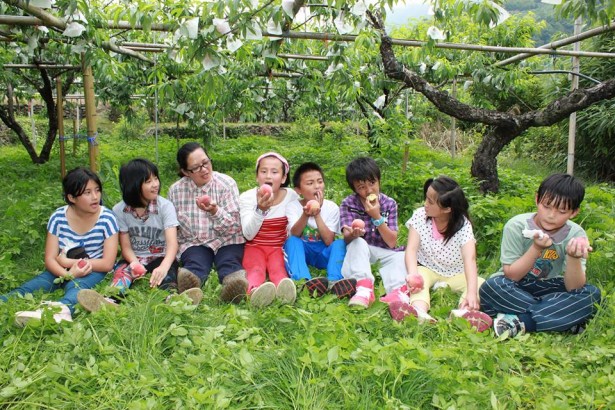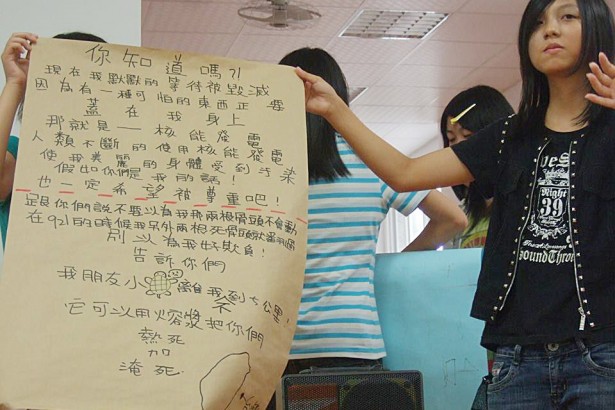The Housewives Union's statement on the press release of the Ministry of Health and Welfare on "implementing and strengthening the Source Management of Food imported from Japan to Taiwan"
Share + 1 Tweet Email
According to the announcement of the Ministry of Health and Welfare on May 1, 2014, the "Taiwan-Japan Exchange and Cooperation Program" will be launched at the end of May, aiming at products with high risk of food imported from Japan to Taiwan. such as live and frozen aquatic products, frozen aquatic products, dairy products, infant food, tea, meat and processed food, etc., are required to be accompanied by Japan's official radiation testing report for border inspection and comparison in China, as a reference for subsequent border inspection probability adjustment. In order to effectively strengthen the source management.
As early as 2012, this Council has put forward four major demands, such as "proposing a health risk assessment of food radiation safety tolerance standards", "openly developing the process of radiation food standards and holding briefings", "publishing sources of imported food and daily updating of food radiation testing reports" and "improving the sampling rate of radiation content of imported food". Appeal to the Government to attach importance to the safety of people's food, this Council once again put forward the following four statements:
1. Taiwan, the top three countries in terms of Japanese food imports, should be strictly regulated in comparison with the laws and regulations of other countries.
Many countries required radiation testing certificates (including certificates of origin and inspection) of their products as early as three years ago after the nuclear disaster, but Taiwan followed up as late as May this year. Compared with China's restrictions on the import of all food from 10 counties and cities in Japan, 14 counties and cities in the United States, and 13 counties and cities in South Korea (aquatic products in 16 counties and cities), China only forbids five counties and cities, as the top three countries in terms of Japanese food imports. The regulations are really too lax.
Second, improve the sampling rate and open information, so as to reduce the risk of people eating radiation-contaminated food.
Like Taiwan, neighboring Hong Kong, which only restricts food imports from Japan's five prefectures and cities, has sampled nearly 190000 items of food as of May 8 this year, and since April 1, 2011, the results of qualified samples with low radiation levels but within the guidelines of the Codex Alimentarius Commission are published daily. In Taiwan, on the other hand, only more than 50,000 items of food have been tested so far, and 195 items containing radioactive iodine-131 and cesium-134 + cesium-137 have been tested, of which 60% are tea and more than 20% of seafood. However, the detailed information and flow direction of the goods have not been released because the standard of less than 370 becquerels / kg is considered qualified. Under such a low sampling rate and opaque information, there is no doubt that the health of Chinese people will be exposed to extremely high risks.
Third, formulate special import agreements in view of the fact that new standardized items have been checked out in China and other countries.
Since 2013, a number of countries have set separate regulations for the import of Japanese tea and aquatic products, and according to the latest announcement of the Ministry of Agriculture, Forestry and Fisheries of Japan on April 1, 2014, 15 countries have imposed controls on radiation levels in imported feed or aquaculture drugs. In this regard, the relevant laws and regulations in Taiwan are still lacking.
Fourth, conduct a health risk assessment to meet the allowable standards for radiation safety in Chinese food.
Taiwan's current standards, which were formulated in 1986, have long been unable to cope with the situation after the Fukushima nuclear disaster. It is called on the government to immediately conduct a health risk assessment of the allowable standards for food radiation safety, making reference to the relevant norms formulated by Asian neighboring countries, and taking into account the food self-sufficiency rate and the eating habits of Chinese people, so as to meet the allowable safety standards for radiation in Chinese food.
For claims and actions related to radiation food, please refer to our website: Housewives Union Environmental Protection Foundation
Radiation food safety standard Brooks no delay
As for radiation food standards, Taiwanese are not as good as American and Korean livestock.
Share + 1 Tweet Email
- Prev

Taoyuan Sanguang Primary School May Peach parent Teachers and students cooperate to sell and raise Education fees
Taoyuan Sanguang Primary School May Peach parent Teachers and students cooperate to sell and raise Education fees
- Next

People-oriented triple youth base bazaar zongzi to raise operating funds
People-oriented triple youth base bazaar zongzi to raise operating funds
Related
- A course of planting techniques and methods on how to grow carrots
- How to plant the latest tulips?
- Is it better to pick tea in the morning or in the afternoon? When is the best time for tea to be picked? what is the third or fifth tea?
- Launch Yuanxiao Happy combination Haocha + Tea Yuan healthy Taste
- Penghu Tourism "Fireworks 20 Parade with You"
- 2022 West Lake Happiness holds "Digital Revitalization Voucher" and draws iphone13 and laptop.
- Banqiao Fuzhou social houses are designed to change start-up combined with police elimination to create a safe and livable environment
- The convenient measure of "mechanical weeding" in Xinbei has been abused and the Agriculture Bureau has imposed heavy penalties on the illegal land consolidation.
- Changgeng University Joins Hands with Four Memory Factories to Rescue Memory Talent Shortage
- The list of Taiwan's top 100 MVP managers is listed by the Director-General of the Farmers' Association of Sanxia District.

